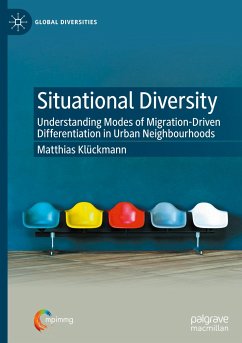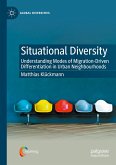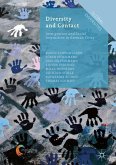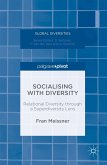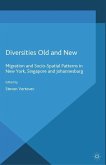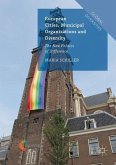At a time when diversity is taking an increasingly prominent place in public and academic debate, Situational Diversity offers a new perspective by understanding diversity framed in the local context, characterised through different forms of social differentiation.
Based on ethnographic fieldwork and archival research on migration-driven diversity in two neighbourhoods in Stuttgart (Germany) and Glasgow (United Kingdom), the book presents a concept that takes into account the contingent and emergent nature of social differentiation while at the same time explaining the stability of modes of differentiation. The comparative approach provides a nuanced analysis of how diversity in urban environments occurs as a result of locally, socially and temporally specific practices.
In this book, Klückmann discusses how social work, city administration and volunteer work prefigure positions and relations of people in the context of migration. Thus,it will appeal to students and scholars of social and cultural anthropology, European ethnology, sociology, human/cultural geography, cultural studies in addition to practitioners in the fields of intercultural relations, social and public policy as well as urban development.
Based on ethnographic fieldwork and archival research on migration-driven diversity in two neighbourhoods in Stuttgart (Germany) and Glasgow (United Kingdom), the book presents a concept that takes into account the contingent and emergent nature of social differentiation while at the same time explaining the stability of modes of differentiation. The comparative approach provides a nuanced analysis of how diversity in urban environments occurs as a result of locally, socially and temporally specific practices.
In this book, Klückmann discusses how social work, city administration and volunteer work prefigure positions and relations of people in the context of migration. Thus,it will appeal to students and scholars of social and cultural anthropology, European ethnology, sociology, human/cultural geography, cultural studies in addition to practitioners in the fields of intercultural relations, social and public policy as well as urban development.

